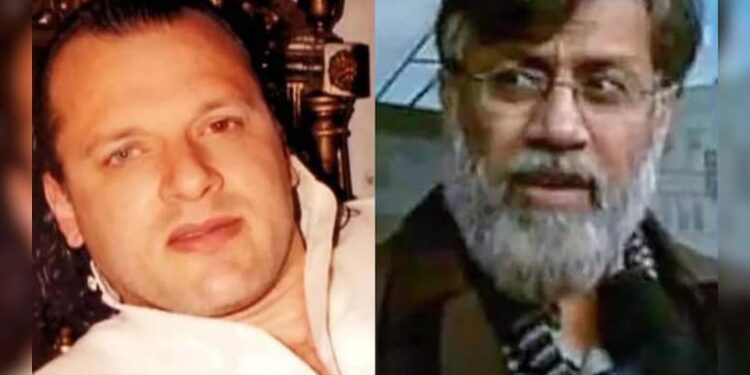David Headley’s Testimony Highlights Tahawwur Rana’s Role in 26/11 Attacks Before Indian Court
Mumbai:
In a pivotal moment during the 26/11 Mumbai terror attacks investigation, David Coleman Headley, a key accused and conspirator, testified before a special court in Mumbai via video conference from a secure location in the United States in 2016. His testimony played a crucial role in establishing the involvement of his childhood friend, Tahawwur Rana, in facilitating the deadly attacks.
Headley, who conducted surveillance of the targets attacked in November 2008, revealed under questioning by Special Public Prosecutor Ujjwal Nikam and defence counsel Wahab Khan that Rana had actively supported his mission. Headley disclosed that he sought and received Rana’s permission to set up a business office in Mumbai — a front for reconnaissance activities planned by the Lashkar-e-Taiba (LeT), the Pakistan-based terrorist organisation responsible for the attacks.
According to the National Investigation Agency (NIA) chargesheet, Rana not only provided logistical and financial support but also helped establish cover identities and documents used by Headley during his reconnaissance trips to India.
While Rana was previously convicted in the United States for plotting a terrorist attack on a Danish newspaper, a Chicago court did not find him guilty of directly conspiring in the 26/11 attacks. Nonetheless, his association with Headley and LeT was made public during the US trial.
The FBI, in its post-conviction statement in 2009, confirmed that Rana had knowledge of LeT’s terrorist operations and was aware of Headley’s involvement with the group. Headley had admitted to attending five LeT training camps between 2002 and 2005. Acting on Lashkar’s instructions, he travelled to India five times before the 2008 attacks, conducting detailed reconnaissance of key locations.
Headley testified that in mid-2006, Lashkar operatives discussed using an immigration business as cover for his operations. He returned to Chicago to inform Rana of this plan. With Rana’s approval, a Mumbai office of First World Immigration Services — a company Rana owned — was set up. Rana also instructed an associate to provide documentation to support the cover story and helped Headley obtain an Indian visa.
These revelations were corroborated by emails, official documents, and Headley’s sworn statements in both Indian and US courts. During his Indian court testimony, Headley also identified the involvement of Pakistan’s intelligence agency, the ISI, stating he had met two ISI officers, Major Ali and Major Iqbal, who introduced him to Sajid Mir — his Lashkar handler with known ISI links.
Headley disclosed that the terrorists had attempted to attack Mumbai in September and October 2008 before finally succeeding in November. He travelled to India eight times for reconnaissance and once after the attacks, collecting intelligence by filming locations and even mingling with public figures in Mumbai to maintain his cover.
His testimony came during the trial of Zabiuddin Ansari, also known as Abu Jundal, accused of coordinating the attacks from Karachi and tutoring the terrorists in Hindi. Jundal was also implicated in the Aurangabad arms haul and other terror-related cases. He is believed to be one of the voices captured directing the attackers during the assault.
Extradition Possibilities and Legal Distinctions
While India continues to pursue the extradition of both Headley and Rana, US authorities have drawn a clear distinction between the two. Assistant US Attorney John J. Lulejian told a federal court in Los Angeles that Headley had cooperated fully with US authorities and entered into a plea agreement that included non-extradition provisions. In contrast, Rana has neither pleaded guilty nor assisted investigators, making his extradition legally viable.
David Headley — born Daood Sayed Gilani — is currently serving a 35-year prison sentence in the US. He narrowly survived a violent attack in prison in 2018. His testimony, however, remains a cornerstone in India’s case against Tahawwur Rana and continues to shape the legal narrative surrounding one of the most devastating terrorist attacks in Indian history.
Also Read : Trump Announces 90-Day Tariff Pause for All Nations Except China Amid Market Jitters















 Categories
Categories









